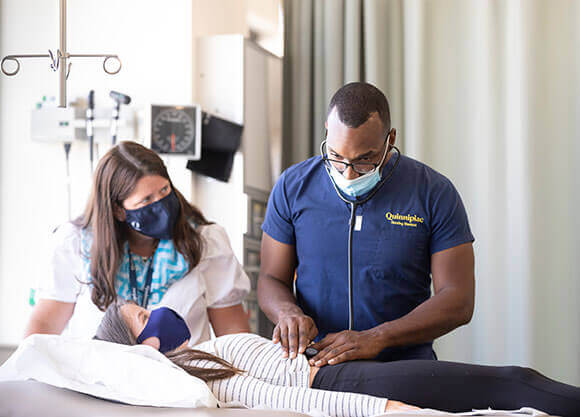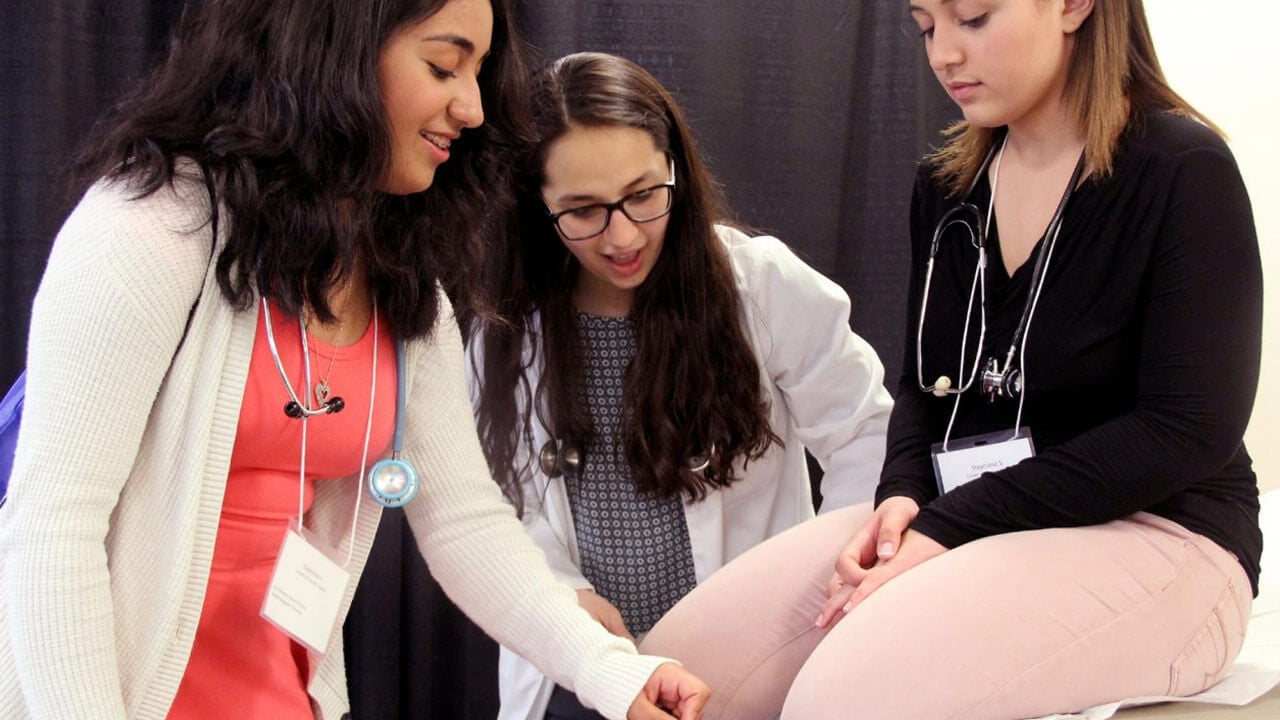Your Learning Experience
Each of our three tracks is designed specifically for radiographers who have already earned initial certification from the American Registry of Radiologic Technologists (ARRT) and would like to pursue an additional credential in a specialized area of interest.
All courses encompass didactic components — including all relevant material consistent with the American Registry of Radiologic Technologists (ARRT) certificate exams — as well as a subsequent clinical experience that provides a foundation for career growth in alignment with the strategic plan of the university.
Didactic Curriculum
Students will complete one three-credit graduate course tailored to the specific track they are pursuing. The didactic portion of the curriculum is conducted online during the summer session. Students will enroll in one of:
-
AMI 515. Introduction to Magnetic Resonance Imaging
Magnetic resonance imaging is studied as it pertains to diagnostic imaging. Topics include mathematics, physical principles, imaging concepts, equipment, image quality, clinical applications and biologic effects of MRI.
Prerequisite: ARRT certification or permission of the department.
-
AMI 538. Introduction to CT Scanning
Computed tomography (CT) scanning as it pertains to diagnostic imaging is studied. Topics include principles, physics, image reconstruction, equipment, image quality, radiation dose, specialized techniques, diagnostic applications and some cross-sectional anatomy.
Prerequisite: ARRT certification or permission of the department.
-
AMI 540. Principles of Mammography
This course provides an overview of the history of mammography as well as fundamental knowledge in the areas of anatomy, physiology and pathology of the breast, mammographic equipment and instrumentation, positioning and technique for mammography. Also covered are methods of patient education and quality control. The course prepares students for the ARRT Mammography Certification Examination and meets all ACR/FDA training requirements.
Prerequisite: ARRT certification or permission of the department.
Clinical Curriculum
Following the completion of the didactic curriculum, students will partake in a clinical experience in the field at various facilities including affiliated hospitals and imaging centers. During their clinical rotation, students will perform examinations under the direct or indirect supervision of a certified radiologic technologist. The experience gained through these rotations continually supports the need to obtain quality diagnostic images and provide appropriate patient care while promoting and maintaining a safe work environment.
Example Clinical Affiliations:
-
Cape Cod Hospital
-
Hartford Healthcare Organization and satellite offices
-
Griffin Health Services
-
Massachusetts General Hospital
-
Midstate Radiology Associates and satellite offices
-
Yale-New Haven Health System, including Bridgeport Hospital, Lawrence and Memorial Hospital and other affiliated hospitals and satellite offices
-
Yale-New Haven Hospital and satellite offices
How to Apply and Register for Courses
Prospective Students
Students who are not currently enrolled at Quinnipiac must complete the graduate application for the Certificates in Advanced Diagnostic Imaging.
Start Your Application
Current students
Current students do not need to fill out an application. Instead, current students interested in adding this certificate to their record must first complete the Certificate Declaration Form.
After completing the form, current students can register for certificate courses using the Self-Service Platform.
Complete the Certificate Declaration Form
Register for Certificate Courses
Non-matriculated and non-degree-seeking students
Students also have the option to enroll in courses without matriculating. Students who want to register for courses as non-matriculated or non-degree-seeking should contact Paula Demaio for more information before filling out our Course Registration Form.





